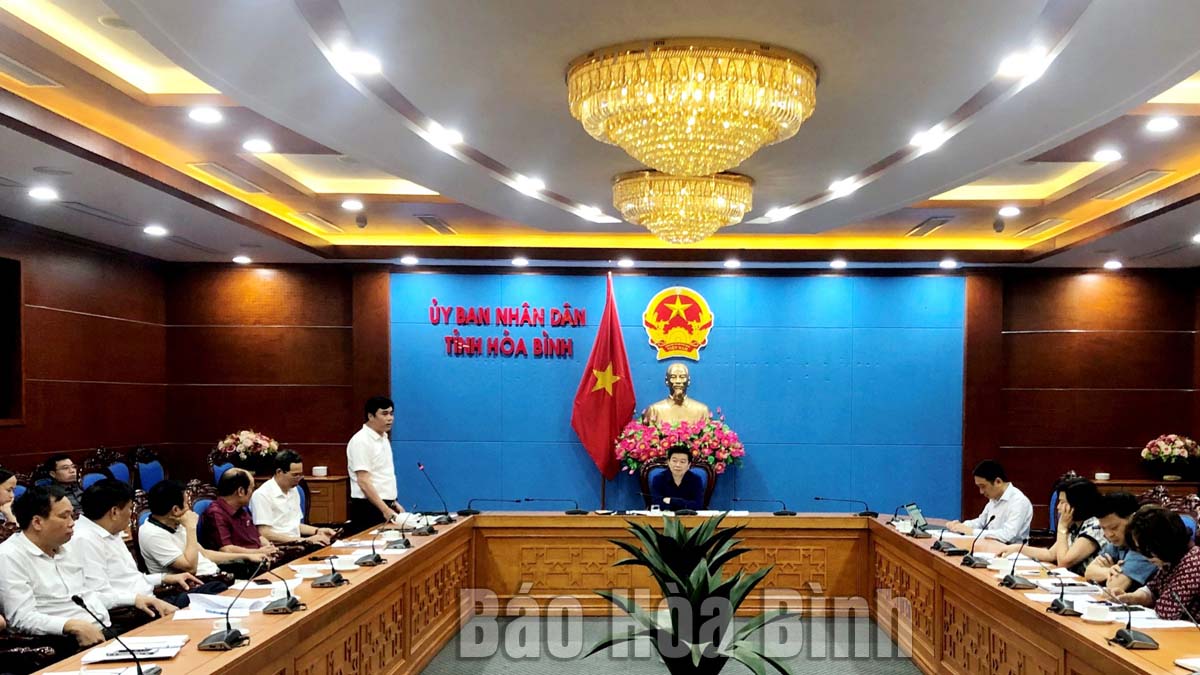
(HBO) – Over the recent years, Hoa Binh authorities have considered the implementation of patriotic emulation movements in ethnic minority areas as one of the important measures to create motivation for socio-economic development. The work not only contributes to hunger eradication and sustainable poverty reduction, but also multiplies good models, new ways of doing things, and exemplary examples of overcoming difficulties.

A model of planting
chayote in Quyet Chien commune, Tan Lac district, brings about high income to
many households.
With creative ways, suitable to local realities, many
movements have been spread, bringing about important results. Typically, Quyet
Chien commune (Tan Lac) has tried to overcome difficulties to exceed the annual
plan target. Tien hamlet in Thung Nai commune (Cao Phong) has actively donated
land and contributed to building a new rural area, while My Thanh commune (Lac
Son) has come up with many innovative ideas in economic development, improving
people's living standards.
Through these movements, a series of effective economic
models have been established in remote and difficult areas, bringing local
products to the market and enhancing their value, as well as creating jobs for
the residents.
The Dao Thong Nhat village agricultural cooperative in Hoa
Binh city has ensured stable jobs for its 86 members and 20 seasonal workers,
while the Muong Pa black pig farming cooperative in Mai Chau has generated jobs
and stable income for 21 members and more than 140 others.
The implementation of the movements has also seen many
examples of typical ethnic minority people with innovative thinking and a
strong will to thrive in production and business. They include Bui Van Tuong
from the Muong ethnic group in Sung hamlet, Thanh Hoi commune (Tan Lac), who
specialises in the production and trading of plant seedlings with high
efficiency; and Bui Thi Huyen, also a Muong ethnic in Suoi Chuon village, Du
Sang commune (Kim Boi), who run clothing processing for large factories,
creating regular jobs for seven workers with an income of 3.5 - 5 million VND
(149-213 USD)/person/month./.
According to data from the Hoa Binh Provincial Party Committee, the industrial production index for the first six months of 2025 is estimated to have increased by 20% compared to the same period last year. This marks the highest year-on-year growth rate for this period since 2020.
In the first six months of 2025, Hoa Binh province’s export turnover was estimated at 1.145 billion USD, marking an 18.11% increase compared to the same period in 2024. Import turnover was estimated at $ 804 million, a 17.15% increase, which helped the province maintain a positive trade balance.
The lives of the ethnic minority farmers in Tan Lac district have gradually improved thanks to the new directions in agricultural production. This is a testament to the collective strength fostered through the professional associations and groups implemented by various levels of the district’s Farmers’ Union.
With the motto the "product quality comes first,” after nearly one year of establishment and operation, Muong village’s Clean Food Agricultural and Commercial Cooperative, located in Cau Hamlet, Hung Son Commune (Kim Boi district), has launched reputable, high-quality agricultural products to the market that are well-received by consumers. The products such as Muong village’s pork sausage, salt-cured chicken, and salt-cured pork hocks have gradually carved out a place in the market and they are on the path to obtaining the OCOP certification.
In the past, the phrase "bumper harvest, rock-bottom prices" was a familiar refrain for Vietnamese farmers engaged in fragmented, small-scale agriculture. But today, a new spirit is emerging across rural areas of Hoa Binh province - one of collaboration, organisation, and collective economic models that provide a stable foundation for production.
Maintaining growing area codes and packing facility codes in accordance with regulations is a mandatory requirement for agricultural products to be eligible for export. Recently, the Department of Agriculture and Environment of Hoa Binh province has intensified technical supervision of designated farming areas and packing facilities to safeguard the "green passport" that enables its products to access international markets.



